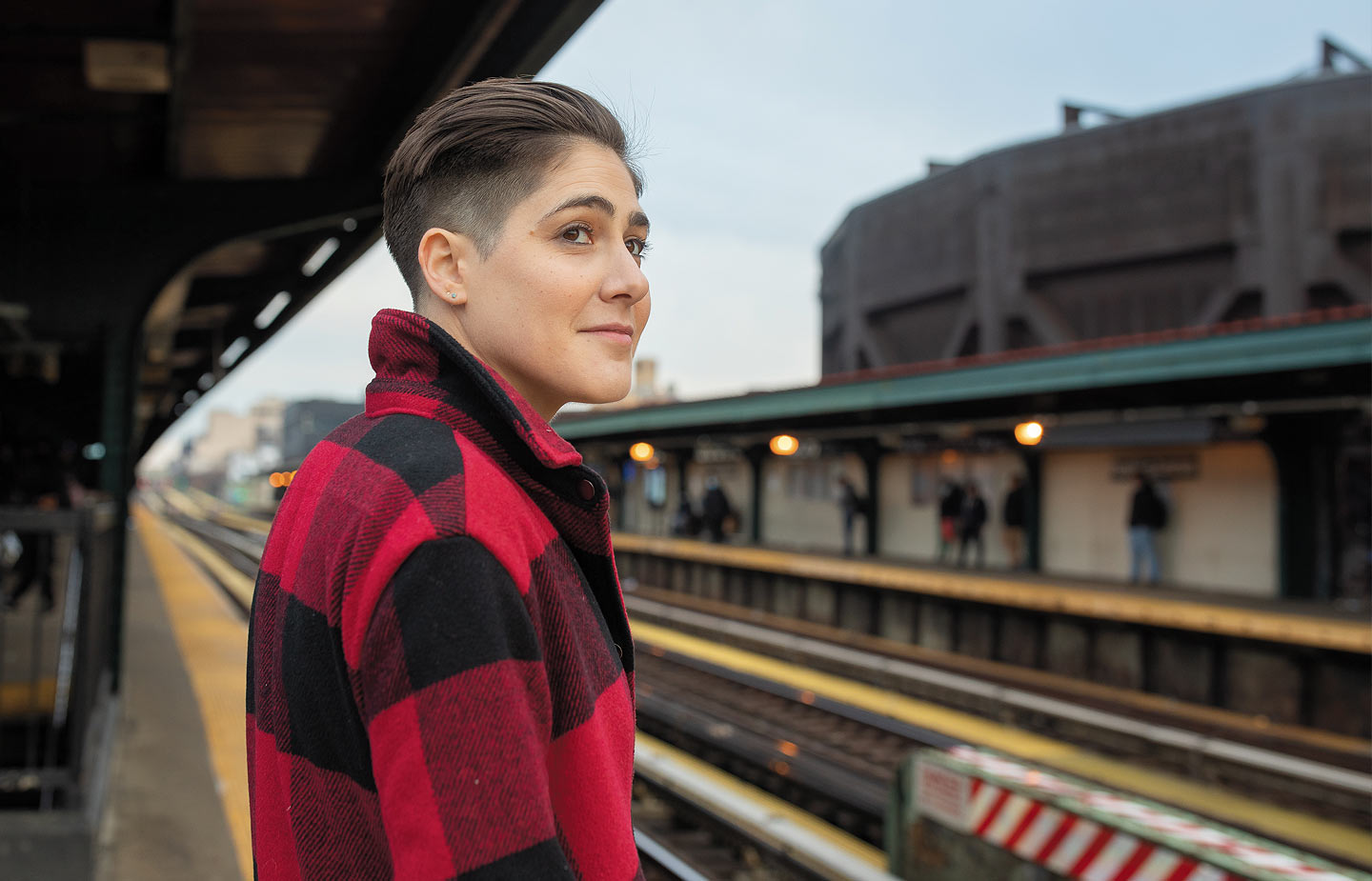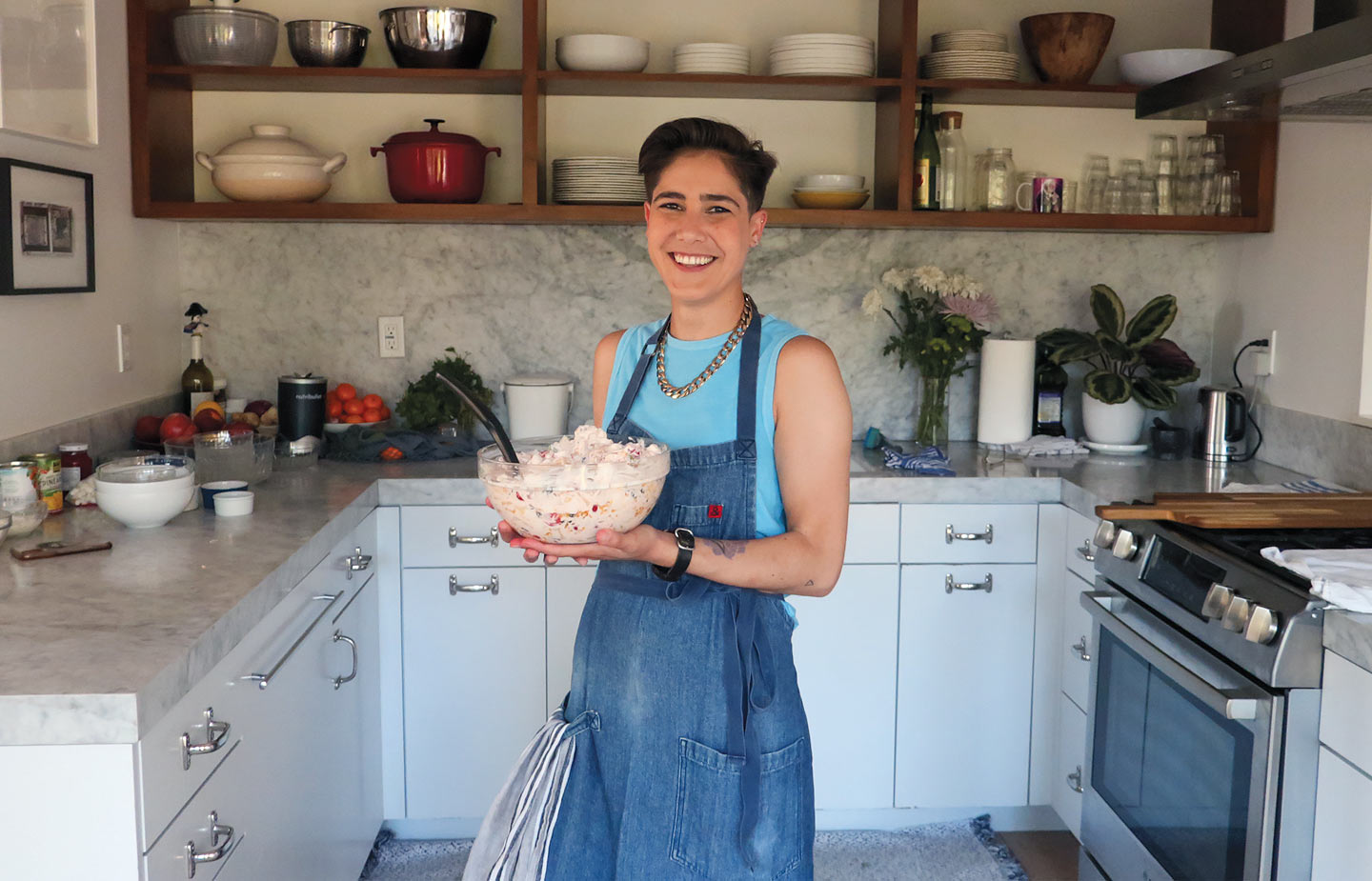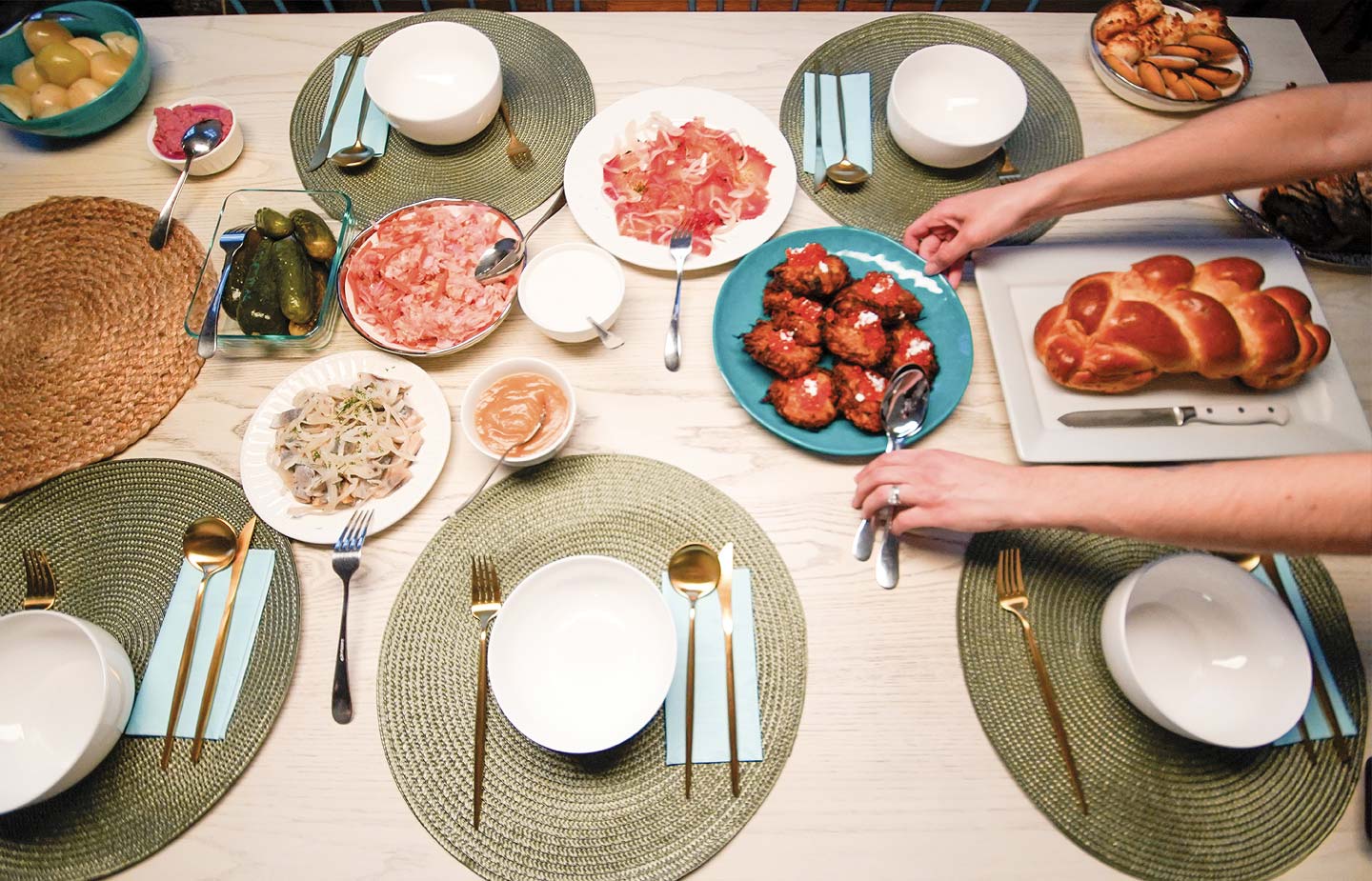The 'Cornivore' on TV
With a new show on the Magnolia Network, culinary anthropologist Casey Corn ’10 helps families recreate lost heirloom recipes.
There is seemingly no end to variations on the timeless riddle concerning provenance and whether it belongs to the chicken or the egg.
In that spirit of philosophical exploration, then: which or who came first, Casey Corn ’10 or culinary anthropology?
“Oh, there was food anthropology long before me,” Corn says, laughing. She’s on the phone from the home she shares with her husband in Atlanta, where they relocated from Brooklyn about a year ago. “But it’s something I feel I’ve taken out of academia and into popular food media.”
Indeed, Corn is the host of a popular new show on the Magnolia Network called Recipe Lost and Found. On each episode, she meets a new family, helping them recreate the secrets behind forgotten ancestral recipes—and then uses that focus to explore the clan’s history and culture.
Corn is perfectly qualified for the role. But it’s true she had to follow her own curiosity in a meandering path of discovery before landing on her own food-based TV show, and she credits her experiences at Conn with exposing her to fields of study she’d never considered.
Originally from Santa Monica, California, Corn enrolled at Conn after “my parents told me I had to go to college,” she says. “I wanted out of L.A. because I went to a really big high school. So I went on an extensive tour of small New England liberal arts colleges. When we drove onto [the Conn] campus, I told my mom, ‘This is the place.’ I just knew.”
Interestingly, though Corn enrolled wanting to study theater and become an actor, there was an early indication she might end up with a different focus.
“We went through the curriculum and they have you check all the courses you find interesting—and without realizing it, I’d checked all anthropology classes,” Corn says. “My mom said, ‘What, are you going to be Indiana Jones?’”
Little did Mom know. Indiana Jones? Sure, if he could rock a dashi poached mackerel with soy-infused shitake.
As it happened, Corn was ambivalent about her early theater experiences at Conn and, along the way she enrolled in an anthropology course with John Burton, who at the time was head of the department (he died in 2014). “I was sitting in that class, and it just clicked,” she remembers. “I thought, ‘This. Is. It. I don’t know how I’ll get a job out of this, but this is how I feel about the world.’ And it snowballed from there in ways I never imagined.”
Burton and another anthropology professor, Jeffrey Cole, who counts food anthropology among his specialties, were hugely influential on Corn’s development. Cole supervised her thesis—on olive oil!—and still fondly recalls a video of a TEDx talk that Corn sent him a few years after she graduated.


